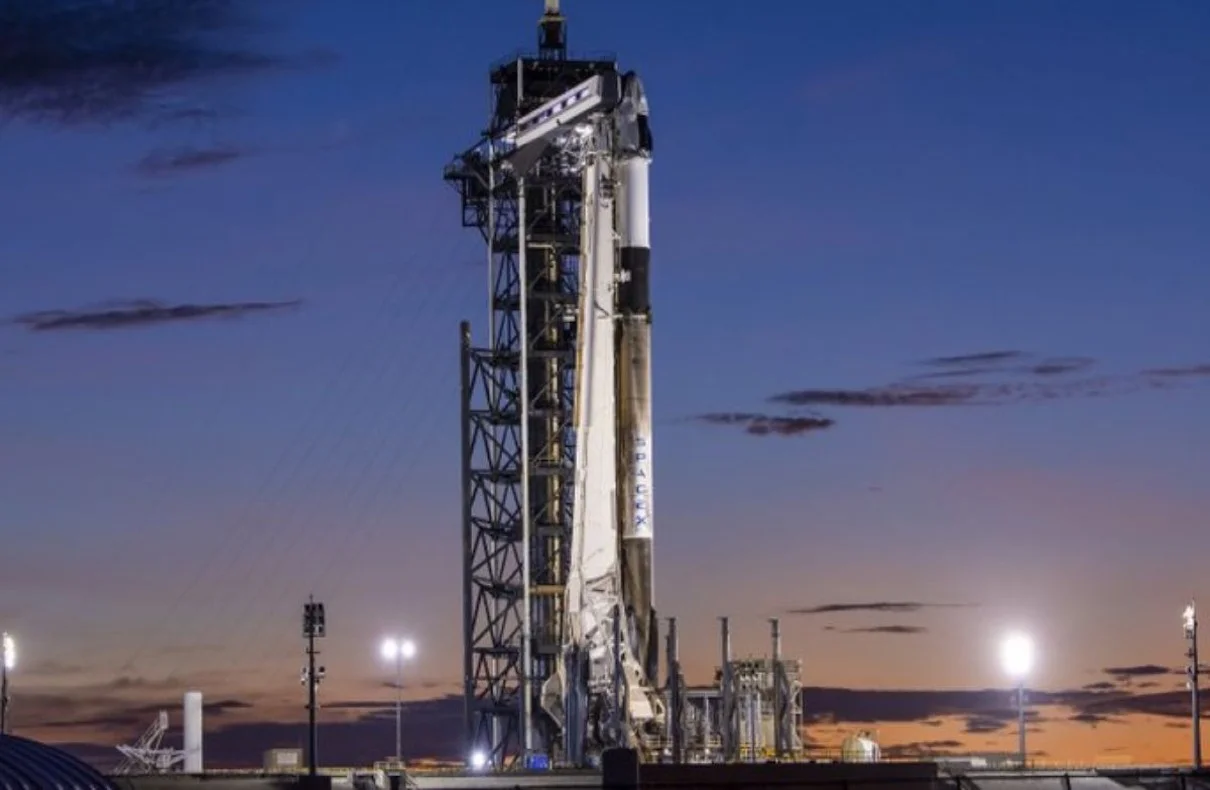SpaceX is all set for the launch of its boldest mission yet: Polaris Dawn. It’s scheduled for tomorrow, but it may not be able to fly. The reason: an FAA investigation.
Failed landing. On Wednesday morning at Cape Canaveral, a Falcon 9 rocket launched 21 Starlink satellites into orbit, 13 of them with direct-to-air cellular connectivity. It looked like another routine mission, like the 80 other missions SpaceX has completed so far this year.
There were no problems as the rocket climbed, or when it separated from the second stage to return to Earth. But something went wrong when the booster landed on the autonomous barge ‘A Shortfall of Gravitas’, which was waiting for it in the Atlantic Ocean, 600 km off the coast of Florida.
It was its 23rd flight. The booster SpaceX lost had the serial number B1062. It had landed 22 times after launching all kinds of payloads, including two GPS satellites, two manned spacecraft (Inspiration4 and Axiom1) and satellites from the competing OneWeb constellation.
On its 23rd launch, it approached the barge at a speed 8 km/h higher than usual for reasons still unknown, broke one of its legs and fell to one side.
For the first time in three years. The last time a Falcon 9 failed to land was on an early Starlink mission on February 21, 2021. On that occasion, the B1059 booster failed due to an early engine shutdown. SpaceX has since completed 267 consecutive successful landings, resetting the counter on August 28.
The FAA has demanded an investigation. The US Federal Aviation Administration has ordered SpaceX to investigate to “determine the root cause of the incident and identify corrective actions to prevent recurrence.” NASA has also joined in, and will launch two astronauts on a Falcon 9 in September.
When the FAA investigates a problem with a space launch, flights of the same rocket family are suspended until the investigation concludes favorably or it is determined that there is no risk to public safety. This can happen within a few hours or days. SpaceX has already postponed the Starlink mission and may also postpone Polaris Dawn if an explanation for the failure is delayed.
A shocking investigation. It is surprising that the FAA is investigating a landing failure when only SpaceX rockets are capable of landing after putting the payload into orbit. The rest of the companies ditch their rockets in the ocean after the ascent phase is complete.
Additionally, several SpaceX rockets have exploded in initial landing attempts, and those failures have never been investigated. There’s a reason for this, and it’s a regulatory change introduced in March 2021, just days after the last SpaceX landing failure. The new rules streamline the operation of reusable rockets, but in turn consider landing failures to be flight incidents.
Two failures in one summer. This year has shown that SpaceX is not without its problems. On July 12, after more than 300 successful launches, a failure in the second stage of the Falcon 9 led to the loss of 23 Starlink satellites due to a liquid oxygen leak. This originated through a crack in a pipe for a pressure sensor.
All launches were suspended and months of delays were expected, but SpaceX completed the investigation in record time, resolved the problem by removing the oxygen line and sensor, which could be replaced with others already on the rocket, and flew again two weeks later.
